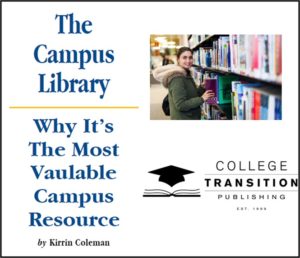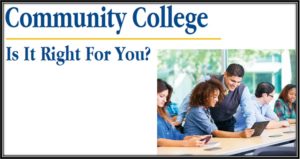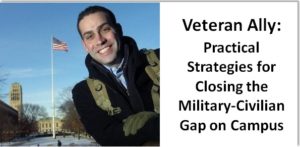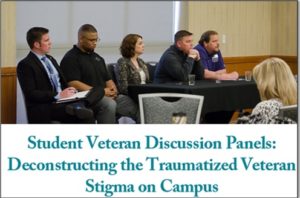Essentials For Success White Papers
The production of, and free access to, these white papers are funded by your Publication Purchase. We appreciate your support.
Success Tips for the First Time Online Instructor
Online learning is ever changing and vast. So much so in fact that the sphere has grown to econom-pass digital learning. This is everything from web-enhanced courses to courses that are fully online. Think of web-enhanced courses as where most instructors start out when they want to dip a toe in the pool of online teaching. They might post their syllabus online, move grading and assignment submissions or quizzes online, and perhaps post lecture slides online. In the middle of digital learning, you find blended or hybrid courses. These courses still meet face-to-face like the web-enhanced courses, but a more substantial portion of the work has been moved online and they are designated as blended/hybrid in a schedule of courses.
The Fabulous 5: Revisiting Best Practices for Supporting Military-Connected Students
It’s been over a decade since the first publications surfaced about military-connected students in higher ed. From community colleges to large public universities and elite private schools, many institutions have invested resources and taken time to learn about this unique and talented student population. Although the past decade has illuminated an assortment of scholarship , tools, techniques and strategies for effectively supporting military-connected students, it’s important to revisit these recommendations to consider their efficacy moving forward. Remember – it’s not enough to simply have an office or a webpage. You need to ensure that you’re maintaining a healthy relationship and dialogue with your students, creating a vibrant culture, and evaluating your program frequently.
To help you stay on track, we’ve compiled the following list of the timeless essentials for ensuring a successful military-connected community.
Student Veterans – Your New Mission: Your Career
Each year over 200,000 service members transition from the military and subsequently become veterans. Most veterans have little exposure to the private sector prior to joining the military. Additionally, with a few exceptions, the only schools and education they’ve experienced have been directly tied to their military job or their unit’s training requirements. The resulting lack of civilian work experience and limited post-secondary education creates one of the largest obstacles for veterans during their transition out of the military and into the workforce.
Fortunately, veterans also possess invaluable practical experience, discipline and “real world” knowledge that stands out to employers. Veterans are resourceful, team-oriented, dedicated, and known for putting in long hours to get the job done right. The mission for today’s transitioning veteran is to highlight these strengths for a civilian audience, as well as to identify the resources and allies necessary at
this juncture.
Millennial Interns – Five Ways They Can Help Grown Small and Mid-sized Businesses
Who are millennials and what characteristics are they known for? They are digitally literate, innovative, and flexible. They are diverse. They are also ambitious, socially conscious, and eager to work. Large companies are working hard to attract them because they recognize the benefits they offer. However, small and mid-sized businesses then to shy away. Unfortunately, they are missing out on an opportunity to grow their business.,
So You Are Thinking About Taking Online Classes?
Are you self-motivated? If the answer is “yes”, then online education may be a good fit for you. Choosing a college or university to attend is a big step in planning your education and career goals, and you want to make sure you find a good fit. While the information you learn in a face-to-face classroom on a college campus and the information you learn in an online classroom should be the same, the learning experience will be different. Before you jump right in to taking online classes there are several things that you need to consider about your time, personality, learning, and goals.
Veteran Ally: Practical Strategies for Closing the Military-Civilian Gap on Campus
Institutions are deficient in training faculty and staff about veteran’s issues, consequently leaving student veterans susceptible to inaccurate perceptions about their service and wellbeing. In an effort to provide an inclusive environment for service members, this article discusses findings from two focus groups and 14 interviews with student veterans. Recommendations for training faculty and staff and enhancing the visibility of veterans’ issues through Veteran Ally training and student veterans discussion panels are discussed. Download
Student Veteran Discussion Panels: Deconstructing the Tramatized Veteran Stigma on Campus
These initial interactions humanized what I have read in the literature in terms of veterans feeling isolated, as an invisible population, or simply misunderstood, and further reinforced the necessity of having an established office on campus to support and advocate for them.
 The Campus Library – Why It’s The Most Valuable Campus Resource
The Campus Library – Why It’s The Most Valuable Campus Resource
Libraries are the nucleus of a college. They hum with social and intellectual activity, and are truly the center of learning. They contain the critical resources that make learning possible – books, journals, workstations, printers, etc. – as well as skilled specialists who can help a student navigate a research topic. The library is often the place students go to get down to business, to reflect and process what they learned in class. Students don’t even have to go to the library in order to benefit from its resources. College libraries provide access to invaluable online resources, from databases to electronic journals to tutorials.
 Community College – Is It Right For You?
Community College – Is It Right For You?
Those in search of the right college often find themselves wondering if a community college can offer a quality education and experience that measures up to that offered by a four-year college or university. Take a close look, and you may be pleasantly surprised by what you discover!
 Essentials for College Success –
Essentials for College Success –
Student success depends on overcoming the academic, financial, and personal challenges they encounter. For instance, many first-year college students have not yet mastered the writing, presentation, and study skills they need. Outside of the classroom, they need to familiarize themselves with available campus resources, learn how to cope with stress in a healthy manner, and figure out how to balance their academic and personal life. And finally, they have to figure out how to pay for it all and not get mired in student loan or credit card debt. Here are more details on today’s college student’s ten essentials for success.
 Essentials for Career Success –
Essentials for Career Success –
We’ve all heard the stories of the recent college graduates returning to their parents’ homes and struggling to find a job at all, much less one in their field. However, there are plenty of indications that recent graduates are, in fact, entering the professional workforce and learning the ins and outs of life in the workplace. So, what type of issues are they facing as they make the transition from college to work? And what types of issues are their employers encountering as they train and work with this generation of new hires?
 The Other 4.0 That Really Matters In College & Life –
The Other 4.0 That Really Matters In College & Life –
Today, even a 4.0 GPA isn’t enough to guarantee you success personally or professionally. Though important, the world’s most successful people didn’t have the best GPAs. There are other measurements that correlate with your long-term success better than the GPA alone. The real 4.0 that matters after college and in your career is your personal capital, intellectual capital, social capital and financial capital.
 Essentials for Financial Success –
Essentials for Financial Success –
Recent college graduates face a much different financial landscape than did the graduates in previous generations. Traditionally, college has been seen as a big investment, but the staggering increases in tuition in recent years have led many to question the value of paying so much for a degree. Crippling student loan debt seems to define today’s young adults, otherwise known as the Millenial generation. And student loan debt is just one of the financial issues today’s college graduates face. Unemployment and underemployment, credit card debt, health care costs, and other increases in the cost of living have led many young adults of this generation to “boomerang” back to their parents, either by moving back in with them or by depending on them to assist with living expenses.
 Essentials for College Success The Veterans Guide –
Essentials for College Success The Veterans Guide –
Each year hundreds of thousands of service members leave the military for civilian life. As part of this transition, many enroll in a postsecondary education program. The transition from a highly structured military environment to a college or university can be overwhelming for veterans, who may confront a variety of barriers in their quest to earn a degree. Aside from having a break in their education, many veterans feel unprepared as students and find it challenging to relate to their peers, faculty, and staff, and to navigate the numerous assistive resources on campus and within their communities. The transition from the military to college is a big step that requires a well-developed and comprehensive plan.
 Veterans on Campus The Essentials for Advisers, Staff, and Faculty –
Veterans on Campus The Essentials for Advisers, Staff, and Faculty –
It is no surprise to the higher education community that veterans are arriving on campuses across the country, and this population is forecasted to grow. Since the Post-9/11 Veterans Educational Assistance Act took effect in 2009, more than 1 million veterans have pursued an educational program. With a majority of departing service members aged 35 or younger, veteran populations will continue to rise in higher education and necessitate a new wave of assistive services and research. Veterans are a unique population of learners who require specialized support and attention. As students, veterans are nontraditional in that they are more likely to be first-generation, to be older than their peers, to have dependents, to be career-focused and to have had a break in their education.





